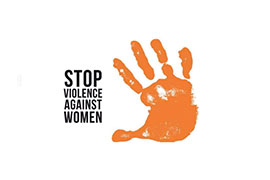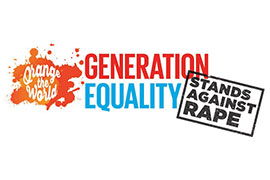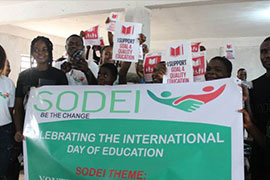Cameroonians continue to flout most of the preventive measures put in place by the government against the novel coronavirus. Many say if these measures are not scrupulously respected, the number of positive cases will increase rapidly.
The Government of Cameroon through its Prime Minister Chief/Dr. Dion Ngute initially outlined some thirteen measures Cameroonians should follow. Amongst the measures is the banning of gathering of not more than fifty people; the closing of its land, air and sea borders; shutting down of schools and the practice of good hygiene. On April 9, additional measures were put in place amongst which include the obligatory use of facemasks in public places. However, implementing these measures particularly with respect to social distancing has been a major challenge. As of April 19, 2020, Cameroon has recorded more than 1000 confirmed cases of COVID-19, 43 confirmed deaths and 350 recovered as per WHO and the Cameroon Ministry of Health sources[i].
Moving along the streets of Buea, one would question the strict respect of the government’s measures. While some are adhering to the social distancing measure, others are not. You can find people gathered in small groups but not far from each other. Some even go to the extent of shaking hands with their friends, a culture that is now on hold in every part of the world. Children can be found along the streets, the mile 17 motor park and in markets hawking or selling various products. This is a matter of grave concern as most of these children don’t even wear face coverings, exposing themselves, their families and communities to the danger contracting the virus.
To make sure that the population respect the measures, the government implemented a fine for those found in public places without masks. One would say this has encouraged compliance to an extent, but the vast majority especially young people can still be seen without masks or having the mask as neck scarfs rather than for protection against the virus. One person I spoke to in Buea intimated that people wear face masks for fear of the police rather than for protection against COVID-19.
It is hoped that these latest, more coercive measures taken by administrative authorities with accompanying fines, would help limit the spread. So far only a few cases have been recorded in the southwest region of Cameroon. It is hoped that the Cameroon government’s measures would lead to a flattening of the curve sooner or later and avoid a catastrophic outcome like what some European countries are currently experiencing. The government’s strategy revolves around the ‘five-weapons-approach’: social distancing, contact tracing, testing, isolation, and treatment highly recommended by experienced epidemiologist and public health experts[ii] and adopted by countries like South Korea who have recorded a degree of success in the fight against COVID-19. However, questions remain as to the availability of resources to effectively implement this strategy.
References
[i] African countries move from COVID-19 readiness to response as many confirm cases
[ii] It’s Not Too Late to Go on Offense Against the Coronavirus




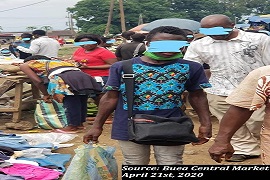
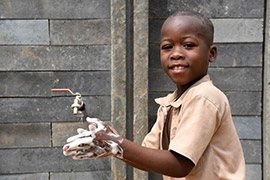
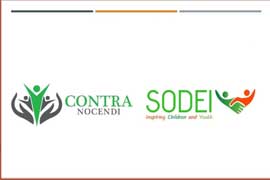
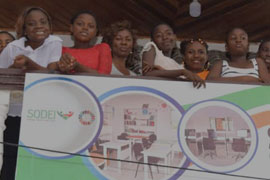


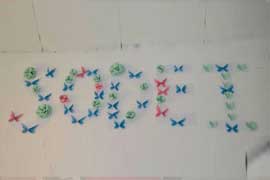
 My name is Tebah Ruth Enjoh but to my family and friends, I am Raël. I am 19 years old and I obtained my Advanced Level GCE certificate last year. I was the Art president and social personnel of the student administration of Government High School Limbe, where I studied the S3 (Biology, Chemistry & Mathematics) series in science. I live in Limbe, a city in the Southwest region of Cameroon.
My name is Tebah Ruth Enjoh but to my family and friends, I am Raël. I am 19 years old and I obtained my Advanced Level GCE certificate last year. I was the Art president and social personnel of the student administration of Government High School Limbe, where I studied the S3 (Biology, Chemistry & Mathematics) series in science. I live in Limbe, a city in the Southwest region of Cameroon. My aunt told me about an art seminar that she wanted me to attend in November so I was really excited about it because she said I will learn a lot from there. One day towards the end of October 2019, she came to my house and said dress up and let’s go we are meeting those people today so I dressed up and we then left. But when I arrived, I saw it was not a seminar but a meeting for the preparation of the LESPLAY project. From that moment, I became a part of SODEI. I was happy because I saw an opportunity to be useful, to exercise and better my artistic skills. I was really looking forward to be part of SODEI and God answered my prayers when I was given the opportunity to handle the creative art department of LESPLAY a SODEI project.
My aunt told me about an art seminar that she wanted me to attend in November so I was really excited about it because she said I will learn a lot from there. One day towards the end of October 2019, she came to my house and said dress up and let’s go we are meeting those people today so I dressed up and we then left. But when I arrived, I saw it was not a seminar but a meeting for the preparation of the LESPLAY project. From that moment, I became a part of SODEI. I was happy because I saw an opportunity to be useful, to exercise and better my artistic skills. I was really looking forward to be part of SODEI and God answered my prayers when I was given the opportunity to handle the creative art department of LESPLAY a SODEI project. When I was 7years old the teacher would often give us drawing assignments to do at home. So when she first gave the assignment which was to draw a car and name its parts, we were to use the weekend for that so I did not really believe I could do it until when I finally took the courage to draw so I will not be punished then I realized that I could actually draw so when I came to class the teacher congratulated me. From then on for the other assignments she gave she would use my drawing to explain things in class and other students would ask me many times to draw for them.
When I was 7years old the teacher would often give us drawing assignments to do at home. So when she first gave the assignment which was to draw a car and name its parts, we were to use the weekend for that so I did not really believe I could do it until when I finally took the courage to draw so I will not be punished then I realized that I could actually draw so when I came to class the teacher congratulated me. From then on for the other assignments she gave she would use my drawing to explain things in class and other students would ask me many times to draw for them. I will make sure to reach out to as many children and young people as possible with a passion for arts so I can encourage and guide them so they don’t give up on their dreams or throw away their talents.
I will make sure to reach out to as many children and young people as possible with a passion for arts so I can encourage and guide them so they don’t give up on their dreams or throw away their talents.

